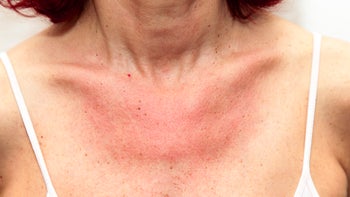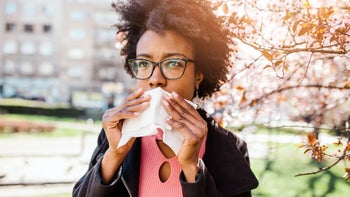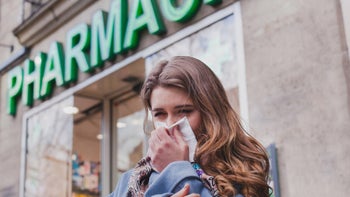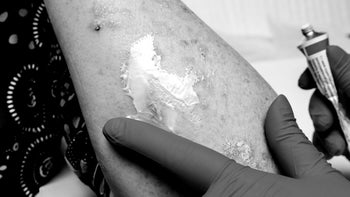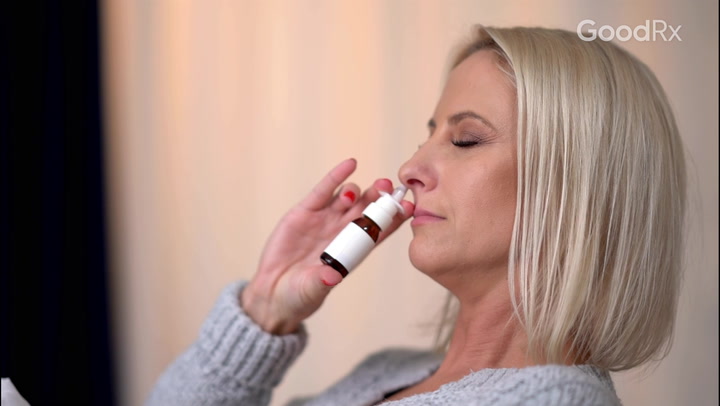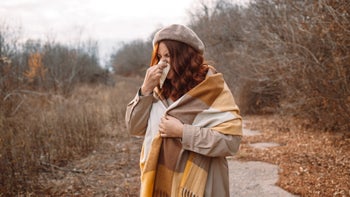
Can Wearing a Mask Help With Seasonal Allergies?
Key takeaways:
Research shows wearing a mask may reduce allergy symptoms.
Pollen particles are larger than COVID-19 particles, meaning masks intended to protect you from COVID-19 are also helpful in protecting you from allergens.
Masks won’t make much of a difference if you primarily deal with eye allergies.
The COVID-19 pandemic has changed how we live. Masks have become an important part of every trip outside of our homes since wearing them can help protect us from infection.
There may be a bonus to wearing masks, too: It turns out that masks intended to protect you from infection may also protect you if you suffer from seasonal allergies.
Here, we’ll lay out what seasonal allergies are and whether a mask might help reduce seasonal allergy symptoms.
Search and compare options
What are seasonal allergies?
In the U.S., it’s estimated that as many as 60 million people experience allergic rhinitis (hay fever). This type of allergy happens when people are exposed to airborne substances (such as pollen) that appear only during specific times of the year. When a person with allergic rhinitis comes in contact with an allergen, their immune system incorrectly perceives it as a threat and jump-starts an immune response. The person may experience sneezing, nasal congestion, a runny nose, and itchy eyes.
Recent research shows that for seasonal allergy sufferers whose noses, throats, and sinuses overreact to allergens such as pollen particles, wearing a mask might help ease their symptoms.
How does wearing a mask reduce allergy symptoms?
A recent study looking at a group of nurses found that those who suffered from seasonal allergies had fewer symptoms after mask rules were put into place to protect them from COVID-19.
Specifically, 40% of the 215 nurses studied self-reported experiencing significantly less sneezing and runny or stuffy noses while wearing N95 and surgical masks.
The results of the study are likely because of how masks work. They create a physical barrier that filters the air around us when we inhale. Particles that are too big to get through the filter, like COVID-19 particles (0.06 to 1.4 microns) and most allergens, won’t make it to our noses or mouths.
A standard surgical mask can filter particles larger than 3 microns, while an N95 mask can filter 95% of particles as small as 0.3 microns. Pollen is typically 10 microns or bigger, making it likely that a mask would filter it.
What’s more, wearing a face mask increases the temperature and humidity of the air you breathe, which can suppress a strong nasal reaction.
All that said, researchers say more and larger studies are needed to confirm how much masks can help with seasonal allergies.
Does mask fit and type matter?
Masks can only do their job if they cover your nose and your mouth.
Taking the time to put a mask on correctly will help protect you from seasonal allergies, and if it’s on correctly, you’ll be less tempted to adjust it. Because allergens may be on your hands, the less you touch your mask, the better.
What types of masks are best?
There is a difference between the protection offered from an N95 mask, surgical mask, and cloth mask.
An N95 mask earned its name because it blocks at least 95% of very small particles. When they are worn properly and have a good seal, all of the air you inhale has gone through the filter.
A surgical mask is good at protecting you from larger particles or anything carried on a droplet. Since they don’t always get a tight seal, unfiltered air can sometimes come through in the gaps around the edges.
Cloth masks are a bit like surgical masks in that they don’t always offer a tight seal. Their effectiveness also varies, so it’s important to check the weave count as a lower weave count means less effectiveness.
Combining cloth and medical masks is one recommended way to protect yourself better from inhaling small particles.
Masks will help your allergies, but they won’t be a perfect solution
Since pollen gets to us through the air we breathe, filtering that air by wearing a mask will help most allergy sufferers. However, as mentioned above, the fit and type of mask makes a difference.
It’s also worth noting that masks won’t likely offer you much relief if you experience itchy eyes from allergies.
More tips to reduce your symptoms during allergy season
Consider covering or rinsing your hair at night to prevent pollen that lands on your hair from getting onto your pillow and then into your nose or eyes.
When you spend time outside, the pollen can stick to your clothes. Consider changing clothes when you get home from your trip outdoors.
If you deal with irritated eyes from allergies, wear glasses to protect your eyes from direct contact with allergens such as pollen.
Pollen counts in the air are usually higher in the morning so consider saving your time outside for the late afternoon.
If your allergies are severe, talk to your healthcare provider about possible over-the-counter or prescription antihistamines, corticosteroids, or decongestant medications.
The bottom line
Research has shown that wearing a mask outdoors will help filter out allergens such as pollen. However, masks are not likely to solve all your allergy symptoms, especially if you deal with irritated eyes. If your allergies are severe, talk with your healthcare provider about additional treatment options.
Why trust our experts?







